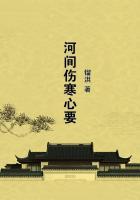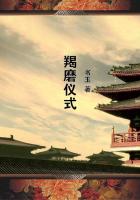I proceed to notice one or two more contrivances by which theancient trammels of proprietary right were more or lesssuccessfully relaxed, premising that the scheme of this treatiseonly permits me to mention those which are of great antiquity. Onone of them in particular it is necessary to dwell for a momentor two, because persons unacquainted with the early history oflaw will not be easily persuaded that a principle, of whichmodern jurisprudence has very slowly and with the greatestdifficulty obtained the recognition, was really familiar to thevery infancy of legal science. There is no principle in all lawwhich the moderns, in spite of its beneficial character, havebeen so loath to adopt and to carry to its legitimateconsequences as that which was known to the Romans as Usucapion,and which has descended to modern jurisprudence under the name ofPrescription. It was a positive rule of the oldest Roman law, arule older than the Twelve Tables, that commodities which hadbeen uninterruptedly possessed for a certain period became theproperty of the possessor. The period of possession wasexceedingly short one or two years according to the nature of thecommodities and in historical times Usucapion was only allowed tooperate when possession had commenced in a particular way; but Ithink it likely that at a less advanced epoch possession wasconverted into ownership under conditions even less severe thanwe read of in our authorities. As I have said before, I am farfrom asserting that the respect of men for de facto possession isa phenomenon which jurisprudence can account for by itself, butit is very necessary to remark that primitive societies, inadopting the principle of Usucapion, were not beset with any ofthe speculative doubts and hesitations which have impeded itsreception among the moderns. Prescriptions were viewed by themodern lawyers, first with repugnance, afterwards with reluctantapproval. In several countries, including our own, legislationlong declined to advance beyond the rude device of barring allactions based on a wrong which had been suffered earlier than afixed point of time in the past, generally the first year of somepreceding reign; nor was it till the middle ages had finallyclosed, and James the First had ascended the throne of England,that we obtained a true statute of limitation of a very imperfectkind. This tardiness in copying one of the most famous chaptersof Roman law, which was no doubt constantly read by the majorityof European lawyers, the modern world owes to the influence ofthe Canon Law. The ecclesiastical customs out of which the CanonLaw grew, concerned as they were with sacred or quasi-sacredinterests, very naturally regarded the privileges which theyconferred as incapable of being lost through disuse howeverprolonged; and in accordance with this view, the spiritualjurisprudence, when afterwards consolidated, was distinguished bya marked leaning against Prescriptions. It was the fate of theCanon Law when held up by the clerical lawyers as a pattern tosecular legislation, to have a peculiar influence on firstprinciples. It gave to the bodies of custom which were formedthroughout Europe far fewer express rules than did the Roman law,but then it seems to have communicated a bias to professionalopinion on a surprising number of fundamental points, and thetendencies thus produced progressively gained strength as eachsystem was developed. One of the dispositions it produced was adisrelish for Prescriptions; but I do not know that thisprejudice would have operated as powerfully as it has done, if ithad not fallen in with the doctrine of the scholastic jurists ofthe realist sect, who taught that, whatever turn actuallegislation might take, a right, how long soever neglected, wasin point of fact indestructible. The remains of this state offeeling still exist. Wherever the philosophy of law is earnestlydiscussed, questions respecting the speculative basis ofPrescription are always hotly disputed; and it is still a pointof the greatest interest in France and Germany, whether a personwho has been out of possession for a series of years is deprivedof his ownership as a penalty for his neglect, or loses itthrough the summary interposition of the law in its desire tohave afinis litium. But no such scruples troubled the mind ofearly Roman society. Their ancient usages directly took away theownership of everybody who had been out of possession, undercertain circumstances, during one or two year. What was the exacttenor of the rule of Usucapion in its earliest shape, it is noteasy to say; but, taken with the limitations which we findattending it in the books, it was a most useful security againstthe mischiefs of a too cumbrous system of conveyance. In order tohave the benefit of Usucapion, it was necessary that the adversepossession should have begun in good faith, that is, with beliefon the part of the possessor that he was lawfully acquiring theproperty, and it was farther required that the commodity shouldhave been transferred to him by some mode of alienation which,however unequal to conferring a complete title in the particularcase, was at least recognised by the law. In the case thereforeof a Mancipation, however slovenly the performance might havebeen, yet if it had been carried so far as to involve a Traditionor Delivery, the vice of the title would be cured by Usucapion intwo years at most. I know nothing in the practice of the Romanswhich testifies so strongly to their legal genius as the usewhich they made of Usucapion. The difficulties which beset themwere nearly the same with those which embarrassed and stillembarrass the lawyers of England. Owing to the complexity oftheir system, which as yet they had neither the courage nor thepower to reconstruct, actual right was constantly gettingdivorced from technical right, the equitable ownership from thelegal. But Usucapion, as manipulated by the jurisconsults,supplied a self-acting machinery, by which the defects of titlesto property were always in course of being cured, and by whichthe ownerships that were temporarily separated were again rapidlycemented together with the briefest possible delay. Usucapion didnot lose its advantages till the reforms of Justinian. But assoon as law and equity had been completely fused, and whenMancipation ceased to be the Roman conveyance, there was nofurther necessity for the ancient contrivance, and Usucapion,with its periods of time considerably lengthened, became thePrescription which has at length been adopted by nearly allsystems of modern law.
同类推荐
热门推荐
天才小姐快到碗里来
她是二十一世纪让人闻风丧胆的异能特工,身边带着超能的黑猫,却遭人背叛穿越到下玄大陆的纪家的懦弱废材小姐的身上。不过,能修炼就好,她解开慢慢的封印,斗庶女,虐渣男。然后收收神兽大军,日子过得好不惬意,竟然来了,就没必要再回去。她玩转下层大陆,无意间发现了一股强大的能量,然后发现那里有个受伤的美男哩!纪笑笑笑嘻嘻的蹭上去:“美男你好哇?”美男邪邪的凤眼一眯:“本君很好。”“那就好。”她点点头。“可是如果不把你骗到碗里来本君整个人都不好了。”美男无赖的攀上她。【初见时】她与他大眼瞪小眼,她眯了眯眼,果然还是美男最养眼。【擦肩而过时】她看着他的背影,为何这个背影如此的熟悉呢?【再次见面时】“嘿--美男,真是好久不见啊。”她无良的笑道。“哦?是么?本君记得前几日还和你擦肩而过来着?”美男靠近她,温热的气息洒在她的脸庞。“美男放过我吧!”她哀求着。“不行啊,本君还没把你骗到碗里来呢。”美男眨了眨凤眼。(一天超过两千点击或20收藏的更3000)(内容绝对欢脱,结局一对一)豪门重生:恶女强势归来
喻婧函死在十六岁,都是因为喻家养女。喻婧函归于十六岁,还是因为喻家养女。上一世,因为喻家养女,未婚夫背叛自己,一直都很疼爱她的家人也被抢走,并且还在十六岁葬身于养女手中。这一世,因为喻家养女,她重生在十四岁,懂得了什么是心机,学会了什么是冷血,并且还在十六岁强势归来。归来后的她,成为特级杀手,面对敌人,冷血绝情,面对朋友,重情重义,面对家人,护短至极,面对爱人,从不矫情。本文豪爽虐渣,女主不矫情,很心机,不傻白甜,很是霸气,不土老帽儿,很高大上儿......异域三国恋:麻雀戏诸候
一次意外的丛林探险,让我落入了一个不知名的世界。这里如同古代的三国,而我成了人们口中能改变乱世的异人。我是项宝儿,除了吃喝玩乐什么能力都没有,怎么可能是他们口中的神呢?离国的强势太子,雁国的温和少君,还有商国富豪之后都向我伸出友谊之手,而我知道:无论倾向哪一边,三国之战已不可避免的爆发了……















